Natural Sweeteners Example
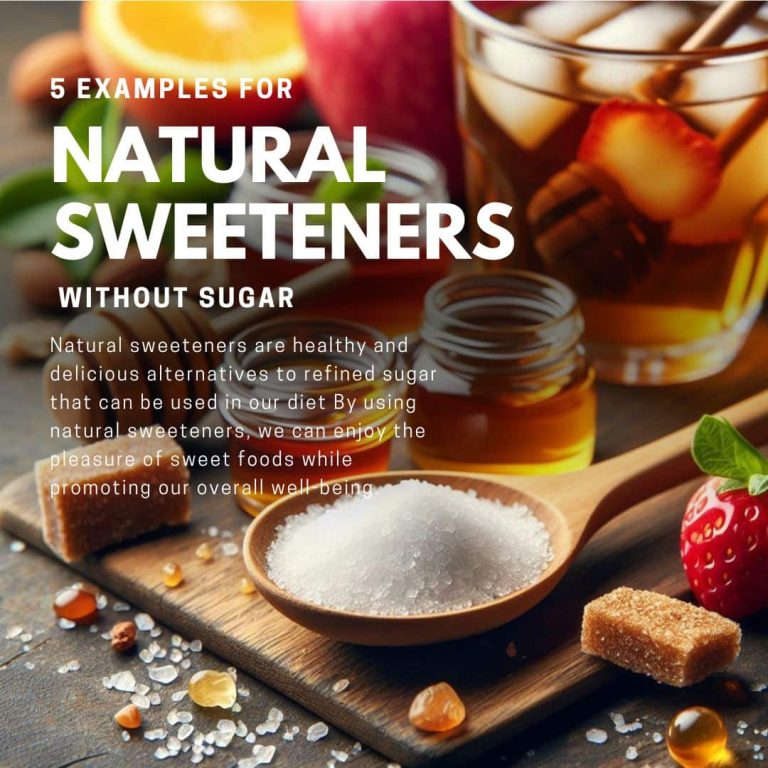
What Is a Natural Sweetener? Exploring Healthy Alternatives to Sugar:
In today’s world, there is an increased focus on health and nutrition as a top priority for many people. Excessive consumption of sugar and sweetened foods can contribute to health problems such as obesity, diabetes, and heart diseases. In this context, using natural sweeteners and healthy alternatives to regular sugar can be a suitable solution.
Natural sweeteners are substances that add a natural sweet taste to foods and beverages. They are naturally found in fruits, vegetables, and some other natural sources. These sweeteners, due to their sweetening properties, can serve as a healthy and natural substitute for regular sugar.
Natural alternative sweeteners:
Stevia
Stevia is a very popular low-calorie sweetener. One of the most popular natural sweeteners is stevia, which is extracted from a plant called Stevia rebaudiana. This plant is extracted in South and North America, and today China is the largest exporter of this plant. This plant is very bitter when it is harvested and has an unpleasant smell.
Today, the products known as stevia in the market usually contain a small amount of stevia, and many brands combine this plant with an extract called rebodioside A. They combine this sweetener from new, new and different compounds such as erythritol – which is a sugar alcohol – rebodioside A and dextrose, or glucose, although some brands sell the extract of this plant in pure form.
The stevia plant is almost 200 to 300 times sweeter than sugar and this plant is very popular due to the lack of calories and the positive effect it has on lowering blood pressure, but since the raw stevia has a bitter taste after the implementation of many purification processes. It loses its minerals and it can almost be said that it is a non-nutritive sweetener.
In addition to the benefits mentioned above for stevia sweetener, this plant may also cause side effects for some people, such as: People who have problems with low blood pressure, it is recommended not to use this sweetener too much because this substance causes dilation. Blood vessels that cause more pressure drop in such people.
Also, the blood sugar in stevia may be a useful sugar substitute for people with diabetes and help maintain healthy blood sugar levels. However, some research shows that stevia It may negatively affect the gut microbiome.
HFCS (High Fructose Corn Syrup)
What is HFCS or high fructose corn syrup? HFCS, also known as high fructose corn syrup, is a sweet compound derived from corn starch. This starch is a combination of glucose molecules that are connected to each other, and by separating these molecules, this product or syrup with 100% glucose is obtained.
In the preparation of this product, other enzymes are also combined with this substance to convert some of this glucose into a simpler sugar called fructose, which is the same as fruit sugar, and there are many formulations with different amounts of fructose. The most common forms of HFCS contain 42 or 55 percent fructose. High fructose corn syrup is a sweetener that has attracted a lot of attention in carbonated drinks and has always been used.
The reason HFSC is found in most products today is that it is a cheap sweetener and food companies usually prefer it over cane sugar to cut costs. The use of this sweetener in the production of products makes these products last longer.
Your body digests HFCS differently than glucose, and it turns to fat more easily and affects your appetite and blood glucose differently because it contains slightly more fructose than cane sugar. Corn syrup also contains harmful neurotoxins.
Consuming fructose has many health consequences, such as increasing the body’s resistance to insulin, obesity, liver disorders, and diabetes. Fructose metabolism begins with the phosphorylation of fructose by the fructose kinase in the liver, and this process is not feedback regulated. Therefore, high fructose intake can decrease ATP, increase uric acid production, and increase nucleotide turnover.
The result of this review focuses on the hepatic manifestations of fructose-related hepatic metabolic disorders such as insulin resistance, obesity due to increased lipogenesis, nonalcoholic fatty liver disease (NAFLD), nonalcoholic steatohepatitis (NASH), and type 2 diabetes.
Golden date syrup
Date liquid sugar is produced from date syrup after extraction, purification, as well as pectin compounds, protein, fiber and color, and its color varies from brown to light yellow. golden date syrup with Brix 68-74% has 73% sugar content. The main sugars in its composition are fructose and glucose, which have almost equal proportions, and in terms of sugar composition, it is similar to beehive honey and high fructose corn syrup.
Considering the cost of production and raw materials, date liquid sugar can have a good place in competition with its similar products such as beehive honey and corn syrup. Considering the advantages of sugar and date syrup, these two can be used as sugar substitutes for sucrose in the preparation of various foods, especially bakery products.
One of the problems in replacing sugar is the adverse effect of taste, physical characteristics of the product and the level of consumer acceptance of the new combination. Due to its high sugar content and pleasant taste, dates can be a suitable substitute for sugar in food formulations.
A Sustainable and Natural Sweetener for a Healthy Diet.
Date sugar can serve as a sustainable and natural alternative to processed sugar and artificial sweeteners in a diet. By using date sugar, you can create delicious and healthy treats. Date sugar is also popularly used as an additive in cooking. It can be incorporated into desserts, cakes, breads, and stews. The sweet and natural taste of date sugar adds a unique flavor and enhances the nutritional value of these dishes.
Therefore, incorporating date powder into your diet can contribute to improving health and enhancing the overall quality of life. With its nutritional properties and health benefits, date sugar can be considered as a healthy substitute for processed sugar and artificial sweeteners. Additionally, by using date sugar in cooking, you can enjoy both flavorful and nutritious meals.
Note: Please consult with a nutritionist or healthcare professional before making significant changes to your diet.
Date paste is a natural and delicious sweetener that can be used as a healthy alternative to processed sugars. Made from dates, this versatile paste adds a unique flavor and numerous nutritional benefits to a variety of dishes. Whether you’re looking to sweeten your baked goods or enhance the taste of your sauces and dressings, date paste is a fantastic choice.
Benefits of Date Paste:
Natural Sweetness: Date paste provides a natural sweetness to your recipes without the need for refined sugars or artificial sweeteners. The natural sugars in dates offer a healthier option for those seeking to reduce their sugar intake while still enjoying a touch of sweetness.
Nutritional Value: Dates are packed with essential nutrients, including fiber, potassium, magnesium, and antioxidants. When dates are transformed into paste, these nutrients are concentrated, making date paste a rich source of vitamins and minerals. Incorporating date paste into your diet can contribute to improved digestion, boosted energy levels, and overall well-being.
Digestive Health: The high fiber content in date paste promotes healthy digestion by aiding in regular bowel movements and preventing constipation. Fiber also helps to regulate blood sugar levels, making date paste a suitable sweetener for individuals with diabetes or those looking to manage their blood sugar levels.
Flavor Enhancer: Apart from its sweetening properties, date paste adds depth and complexity to dishes. It provides a caramel-like flavor that complements both sweet and savory recipes. From smoothies and granola bars to salad dressings and marinades, date paste can elevate the taste profile of your favorite dishes.
Incorporating Date Paste into Your Recipes:
To incorporate date paste into your recipes, simply replace an equal amount of sugar with an appropriate quantity of date paste. You can also use date paste as a binding agent in energy balls, bars, and raw desserts. Experiment with different recipes and adjust the amount of date paste to achieve your desired level of sweetness.
If you are interested in date paste you can read more by reading this article.
The benefits of Date Liquid Sugar are as follows:
1. In equal amounts, it is sweeter than sucrose. Therefore, it is economically more affordable.
2. At equal concentration, it is a better preservative than sucrose.
3. Due to its regenerative nature, it has less tendency to crystallize or sugar.
4. Retains moisture better.
5. Improves color and taste.
6. Improves texture.
Baking with natural sweeteners:
Baking with natural sweeteners can be a great way to reduce the refined sugar content in your baked goods while adding unique flavors and nutritional benefits. Here are some tips for baking with natural sweeteners:
Conversion Ratio: Keep in mind that natural sweeteners may have different sweetness levels compared to refined sugar. You may need to adjust the quantity of sweetener used in your recipe. Consult conversion charts or follow recommended conversion ratios provided by the sweetener manufacturer.
Moisture Adjustment: Some natural sweeteners, such as honey or date syrup, contain moisture. To maintain the desired texture and moisture level in your baked goods, you may need to make adjustments by reducing the amount of liquid ingredients or increasing the dry ingredients slightly.
Flavor Combinations: Experiment with flavor combinations by using different natural sweeteners. For example, you can combine honey with date syrup or use maple syrup with molasses for a more complex flavor profile. This can add depth and richness to your baked goods.
Texture Enhancement: Some natural sweeteners, like date paste, chopped date or mashed bananas, can add moisture and improve the texture of baked goods. They can be used as a partial replacement for oil or butter, resulting in healthier and moist treats.
Natural sweeteners diabetes:
As natural sweeteners, both date syrup (date molasses) and corn syrup have their own benefits and considerations. To determine which one is more beneficial, we need to consider various factors such as nutritional properties, effects on blood sugar levels, and overall health.
Date syrup is derived from dates and is nutritionally rich. It contains vitamins, minerals, and fiber, and may be better for blood sugar management compared to corn syrup. Date syrup also contains antioxidants and flavonoids that contribute to overall health. However, it’s important to note that date syrup still contains natural sugars, and excessive consumption may have negative effects on blood sugar levels.
On the other hand, corn syrup is derived from corn and is used as a substitute for refined sugar in some foods and beverages. It is a natural sweetener and can be used in certain recipes. However, corn syrup is primarily composed of sugar and has lower nutritional value compared to date syrup. Additionally, some commercial corn syrups may contain refined sugar or other additives that could have adverse effects on health.
Therefore, if you prioritize nutritional properties and effects on blood sugar levels, date syrup may be a better choice.
Conclusion:
Dates products are natural and nutritious sweetener that offers a range of benefits for both your health and culinary creations. By substituting processed sugars with date sugar, golden date syrup and etc, you can enjoy the natural sweetness of dates while reaping the advantages of its nutritional content.
So go ahead and give date products a try in your next baking or cooking adventure, and savor the delightful flavors it brings to your dishes.
What are the nutritional benefits of natural sweeteners?
FAQ
Sweeteners that are based on dates have a low glycemic index and are also non-Gmo, so they are very useful, like: date syrup, date paste and golden date syrup.
These alternatives can be healthier choices compared to refined sugar, it's essential to consume them in moderation as part of a balanced diet.
Date sugar, as a natural sweetener, can be considered one of the healthiest options.
Using date sugar can be a great choice for those looking for a healthier substitute in their diet.
Both golden date syrup and date sugar can be considered natural sweeteners without added sugar.
Yes. date sugar is often considered a healthier alternative to refined sugar due to its natural properties.
Date powder contains essential minerals, such as potassium, magnesium, and iron, along with some vitamins.
- Date sugar
- Stevia
- Honey
- Chopped date
- Date syrup
- Golden date syrup
- Date paste
About The Blog

We have a dedicated blog section on our website that focuses on the topic of natural sweeteners. In this blog, We discuss natural sweeteners that are good for you. our goal is to provide users with practical information and raise awareness about this subject.
Subscribe for Update
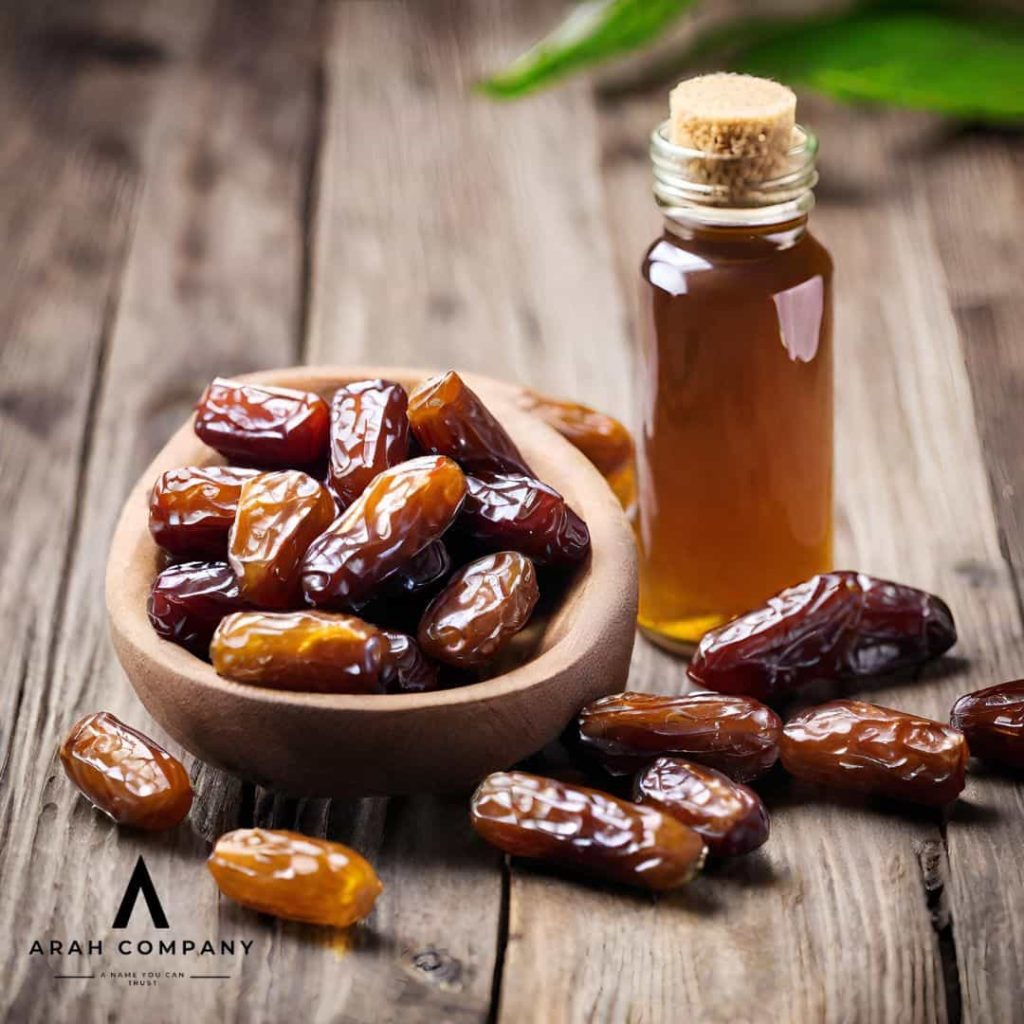
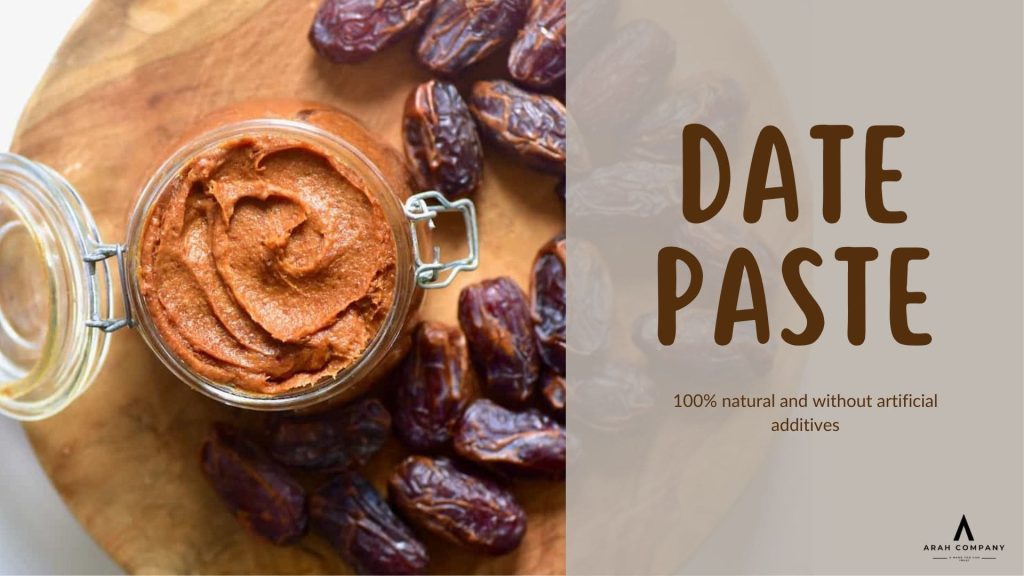


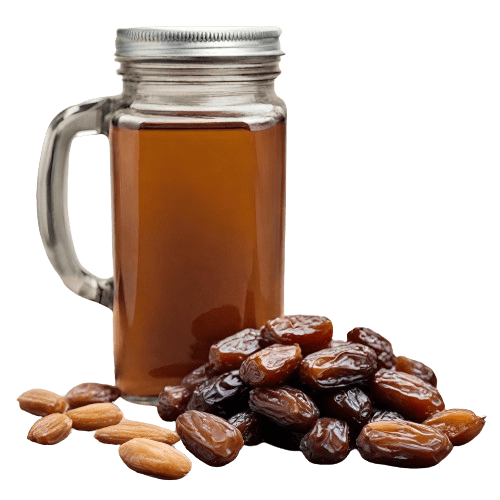


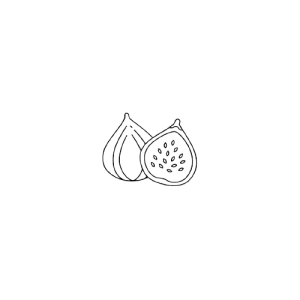




What are natural liquid sweeteners?
Which one is better?
Hello Dear Frieda,
Date syrup, golden date syrup and date honey are the healthiest liquid sweeteners.
Also, these natural sweeteners are without sugar and suitable for diabetics.
Can provide a link mass to your website https://zetds.seychellesyoga.com/info
Your site’s position in the search results https://zetds.seychellesyoga.com/info
Free analysis of your website https://zetds.seychellesyoga.com/info
SEO Optimizers Team https://zetds.seychellesyoga.com/info
Cool website. There is a suggestion https://zetds.seychellesyoga.com/info
I really liked your site. Do you mind https://zetds.seychellesyoga.com/info
Here’s what I can offer for the near future https://zetds.seychellesyoga.com/info
You will definitely like it https://zetds.seychellesyoga.com/info
Content for your website https://ztd.bardou.online/adm
Web Development Wizards https://ztd.bardou.online/adm
Can provide a link mass to your website https://ztd.bardou.online/adm
Your site’s position in the search results https://ztd.bardou.online/adm
Free analysis of your website https://ztd.bardou.online/adm
SEO Optimizers Team https://ztd.bardou.online/adm
I offer mutually beneficial cooperation https://ztd.bardou.online/adm
Cool website. There is a suggestion https://ztd.bardou.online/adm
I really liked your site. Do you mind https://ztd.bardou.online/adm
Content for your website https://ztd.bardou.online/adm
Web Development Wizards https://ztd.bardou.online/adm
Can provide a link mass to your website https://ztd.bardou.online/adm
Your site’s position in the search results https://ztd.bardou.online/adm
SEO Optimizers Team https://ztd.bardou.online/adm
I offer mutually beneficial cooperation https://ztd.bardou.online/adm
Cool website. There is a suggestion https://ztd.bardou.online/adm
Content for your website http://myngirls.online/
Web Development Wizards http://myngirls.online/
Can provide a link mass to your website http://myngirls.online/
Your site’s position in the search results http://myngirls.online/
Free analysis of your website http://myngirls.online/
SEO Optimizers Team http://myngirls.online/
I offer mutually beneficial cooperation http://myngirls.online/
Content for your website http://fertus.shop/info/
Web Development Wizards http://fertus.shop/info/
Can provide a link mass to your website http://fertus.shop/info/
Your site’s position in the search results http://fertus.shop/info/
Free analysis of your website http://fertus.shop/info/
SEO Optimizers Team http://fertus.shop/info/
I offer mutually beneficial cooperation http://fertus.shop/info/
Cool website. There is a suggestion http://fertus.shop/info/
I really liked your site. Do you mind http://fertus.shop/info/
Here’s what I can offer for the near future http://fertus.shop/info/
You will definitely like it http://fertus.shop/info/
The best prices from the best providers http://fertus.shop/info/
Additional earnings on your website http://fertus.shop/info/
Analytics of your website http://fertus.shop/info/
I would like to post an article http://fertus.shop/info/
How to contact the administrator on this issue http://fertus.shop/info/
Shall we exchange links? My website http://fertus.shop/info/
The offer is still valid. Details http://fertus.shop/info/
We offer cooperation on SEO optimization http://fertus.shop/info/
Content for your website http://fertus.shop/info/
Web Development Wizards http://fertus.shop/info/
Can provide a link mass to your website http://fertus.shop/info/
Your site’s position in the search results http://fertus.shop/info/
very informative articles or reviews at this time.
SEO Optimizers Team http://fertus.shop/info/
Хочешь обновить интерьер? Перетянем твою мебель в Минске
обивка мебели в минске https://obivka-divana.ru/ .
Gana premios con el bono casino sin deposito
casino online bono por registro sin deposito casino bono de bienvenida sin deposito .
Идеи для декорирования сада с помощью рулонного газона
рулонный газон купить в московской области цена https://rulonnyygazon177.ru/ .
Атмосфера волшебства и красоты
12. Эксклюзивный дом из бруса 9х12: индивидуальный подход
дом из бруса 9х12 https://domizbrusa9x12spb.ru/ .
Reduslim bg ist ein neues Produkt auf dem Markt für Gewichtsabnahme, das für Aufsehen sorgt.
Dieses natürliche Nahrungsergänzungsmittel verspricht, überschüssiges Fett effektiv zu
verbrennen und den Stoffwechsel anzuregen. Die Inhaltsstoffe von Reduslim bg sind sorgfältig ausgewählt und sollen dabei
helfen, den Körper bei der Gewichtsabnahme zu unterstützen.
Viele Menschen haben bereits positive Erfahrungen mit Reduslim bg gemacht
und berichten von schnellen Ergebnissen. Durch die Einnahme der Kapseln wird das Hungergefühl reduziert und gleichzeitig die
Fettverbrennung angekurbelt. Dadurch ist es einfacher, Kalorien zu verbrennen und das Gewicht langfristig zu reduzieren.
Das Besondere an Reduslim bg ist, dass es keine Nebenwirkungen hat und ausschließlich aus natürlichen Inhaltsstoffen besteht.
Dadurch ist es eine sichere und effektive Methode, um Gewicht zu verlieren. Wenn auch
Sie sich nach einem einfachen und effizienten Weg zur Gewichtsabnahme sehnen, könnte Reduslim bg die Lösung für Sie sein. Probieren Sie es aus und überzeugen Sie sich
selbst von den positiven Effekten dieses Produkts!
My webpage – https://reduslim.at/
Услуги уголовного адвоката включают в себя полный комплекс
правовой поддержки лиц, столкнувшихся с уголовным судопроизводством.
Начиная с момента возбуждения уголовного
дела и заканчивая исполнением приговора, адвокат становится
ключевой фигурой защиты прав и законных интересов подзащитного.
В рамках своей деятельности адвокат оказывает следующие услуги:
1. Консультирование по всем вопросам уголовного права.
2. Сопровождение при допросах и следственных
действиях.
3. Сбор и представление доказательств, способствующих защите клиента.
4. Составление процессуальных документов,
жалоб и ходатайств.
5. Прямое представление интересов обвиняемого или подозреваемого в
суде всех инстанций.
6. Оказание помощи в досудебном разрешении уголовного преследования.
7. Подготовка и проведение защитной речи.
8. Обжалование судебных решений,
в том числе в апелляционном и кассационном порядке.
Уголовный адвокат работает в условиях высокой ответственности и стресса, так как от его действий
зависит не только юридическая, но и личная судьба человека.
Профессионализм, знание нюансов законодательства,
умение анализировать и стратегически
мыслить являются неотъемлемыми качествами,
необходимыми для успешной деятельности в
этой области.
Also visit my blog post :: услуги адвоката по уголовным делам в москве
Pharmacology’s Role and Drug Development in Modern Society
Pharmacology, the science of drugs and their effects on living systems, plays a pivotal role in modern society.
With an ever-increasing burden of diseases and health conditions, the development of new
medications is vital for improving healthcare outcomes and enhancing quality of life.
This article explores the significance of pharmacology and the process of
drug development in addressing contemporary health challenges.
**Understanding Pharmacology:**
Pharmacology encompasses a multidisciplinary approach, combining aspects of biology, chemistry, physiology, and pathology to study how drugs interact
with biological systems. It delves into the mechanisms of action, therapeutic
effects, and potential side effects of medications.
By comprehensively understanding these factors, pharmacologists strive to develop safer
and more effective drugs for treating various ailments.
**Importance of Drug Development:**
The development of new drugs is essential for combating both prevalent and emerging health threats.
Chronic diseases such as cardiovascular disorders, cancer, diabetes, and respiratory ailments continue to impose a significant burden on global health.
Moreover, the emergence of novel pathogens, antimicrobial resistance, and environmental factors further underscore the need
for innovative pharmaceutical solutions.
**Phases of Drug Development:**
The journey from drug discovery to market availability is
a complex and rigorous process comprising several distinct phases:
1. **Drug Discovery:** Scientists identify potential drug candidates through various means, including screening natural compounds, designing molecules using computational methods, or
repurposing existing drugs for new indications.
2. **Preclinical Research:** Promising drug candidates undergo extensive laboratory testing
to assess their safety, efficacy, and pharmacokinetic properties in cellular and animal models.
3. **Clinical Trials:** Drug candidates that demonstrate
favorable preclinical results advance to clinical trials, which
consist of three sequential phases:
– **Phase I:** Involves testing the drug’s safety and dosage
in a small group of healthy volunteers.
– **Phase II:** Evaluates the drug’s efficacy and side effects in a larger group of individuals with the targeted disease or condition.
– **Phase III:** Further assesses the drug’s safety and efficacy in a diverse population across multiple locations to establish its therapeutic benefits and risks.
4. **Regulatory Approval:** Following successful
completion of clinical trials, pharmaceutical companies submit
comprehensive data to regulatory authorities such as the
FDA in the United States or the EMA in Europe for approval to market the drug.
5. **Post-Marketing Surveillance:** Even after approval, ongoing monitoring is
crucial to detect any unforeseen adverse effects and ensure the drug’s continued safety and efficacy in real-world settings.
**Challenges and Future Directions:**
Despite significant advancements in pharmacology and drug development,
several challenges persist. These include escalating research and development costs, regulatory hurdles, ethical considerations,
and the increasing complexity of diseases. Additionally,
disparities in access to medications and healthcare services remain a global
concern.
Looking ahead, emerging technologies such as precision medicine,
gene editing, and artificial intelligence offer promising avenues for personalized
therapies and targeted drug development. Collaborative efforts among researchers,
clinicians, pharmaceutical companies, and policymakers are
imperative to address these challenges and harness the full
potential of pharmacology in improving global health outcomes.
In conclusion, pharmacology plays a central role in modern society by driving the development of new medications
to combat a myriad of health challenges. Through continuous innovation and collaboration, the field of pharmacology
holds immense promise for enhancing healthcare delivery and promoting well-being worldwide.
Here is my web page: “http://bbs.heyshell.com/forum.php?mod=viewthread&tid=26926&extra=
Vavada казино онлайн предлагает захватывающий
опыт игры в азартные игры прямо из уютного уголка
вашего дома. Сайт казино наполнен широким выбором игр, начиная от классических слотов и заканчивая
живыми играми с настоящими дилерами.
Помимо этого, пользователи могут насладиться щедрыми бонусами и акциями, которые делают игровой процесс еще более увлекательным.
Одной из особенностей Vavada казино является удобство использования сайта и
мобильной версии. Игроки могут легко переключаться между играми и наслаждаться
качественной графикой и звуковым
сопровождением. Кроме того, казино предлагает различные способы пополнения и вывода средств, обеспечивая максимальный комфорт и безопасность для своих клиентов.
Не упустите возможность окунуться в захватывающий мир азартных игр с Vavada казино онлайн
и испытать удачу в любимых играх
прямо сейчас!
Feel free to surf to my web page; казино вавада официальный сайт
?Disfruta de la emocion del casino en linea en Peru!
casino en linea peru casino en linea peru .
**На каком ухе мужчине носить сережку: Мифы и реальность**
Сережки для мужчин стали неотъемлемой частью мужского стиля, выражением индивидуальности и модного высказывания. Однако, один из вечных вопросов, с которым сталкиваются мужчины, решившие украсить свои уши, — на каком ухе стоит носить серьгу? Некоторые считают, что существует определенное правило, указывающее на “правильное” ухо для сережки, в то время как другие считают, что это просто суеверие или модное трендовое правило, которое можно игнорировать. Давайте разберемся в этом вопросе.
**Мифология и культурные особенности**
В различных культурах и обществах ношение сережек у мужчин имеет различные символические значения. Например, в некоторых культурах серьга в левом ухе мужчины связывается с гомосексуальной ориентацией, в то время как серьга в правом ухе может быть воспринята как признак гетеросексуальности. Однако, в современном мире эти представления могут быть устаревшими и не иметь никакого значения.
**Медицинские соображения**
Есть также утверждения о том, что выбор уха для серьги может зависеть от медицинских соображений. Например, некоторые люди предпочитают носить серьгу в ухе, находящемся дальше от места работы или занятий спортом, чтобы избежать травмирования уха.
**Индивидуальный выбор**
Сегодня большинство людей склонны считать, что выбор уха для ношения серьги — это вопрос индивидуального предпочтения и стиля. Многие мужчины выбирают ухо для серьги исходя из внешнего вида и комфорта, а не из каких-либо социальных или культурных ожиданий. Носить серьгу на том ухе, который кажется вам более подходящим или удобным, является вполне обоснованным решением.
**Заключение**
Вопрос о том, на каком ухе мужчине носить сережку, не имеет однозначного ответа. Это индивидуальный выбор, который зависит от личных предпочтений, стиля и удобства. Мифы о том, что серьга в определенном ухе может иметь определенное значение, скорее всего, утратили свою актуальность в современном обществе. Важно помнить, что самое главное — это быть уверенным в своем стиле и выражать себя так, как вам нравится, независимо от того, на каком ухе вы носите сережку.
My web-site – https://king-wifi.win/wiki/User:RedaStrehlow4